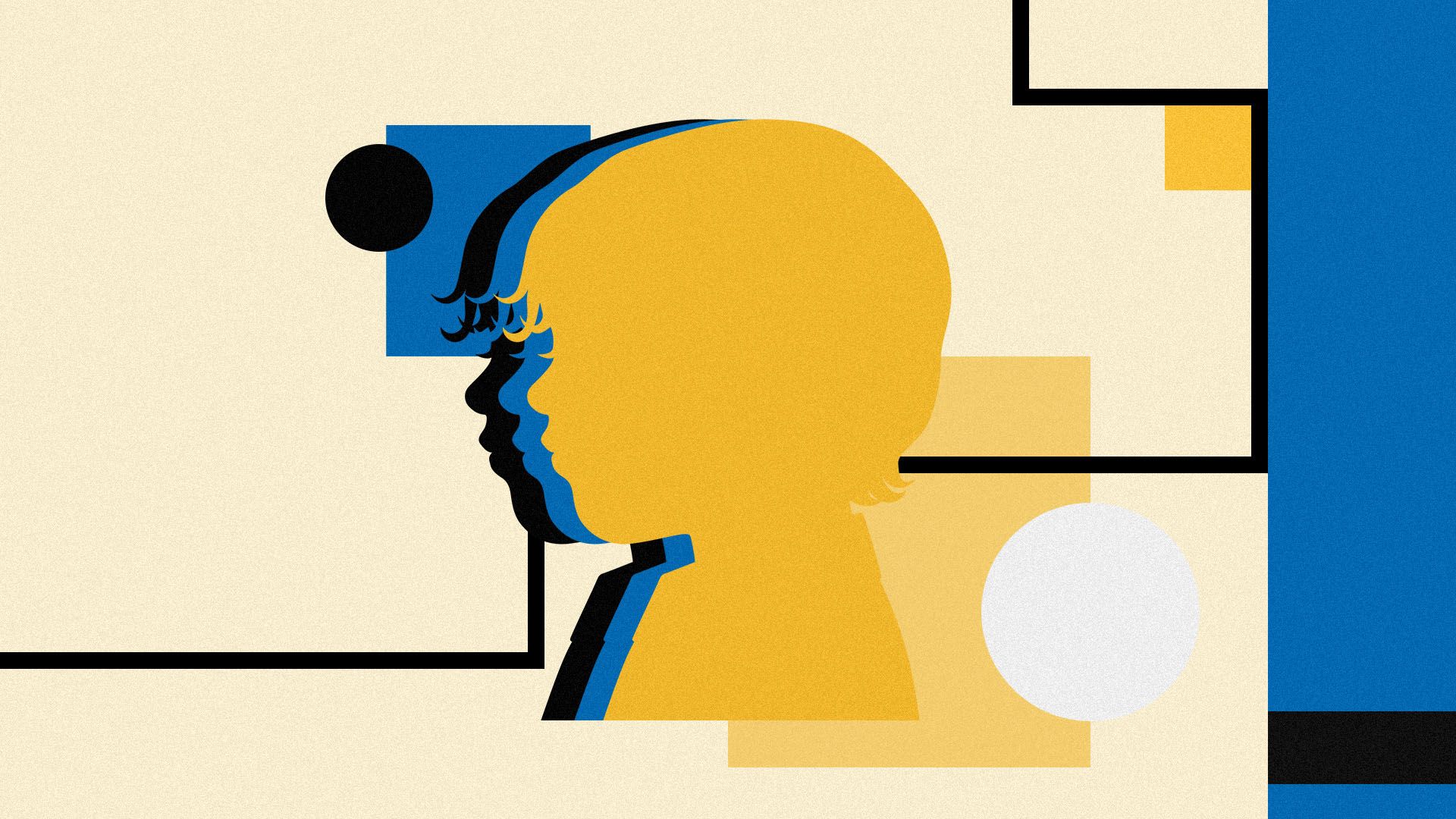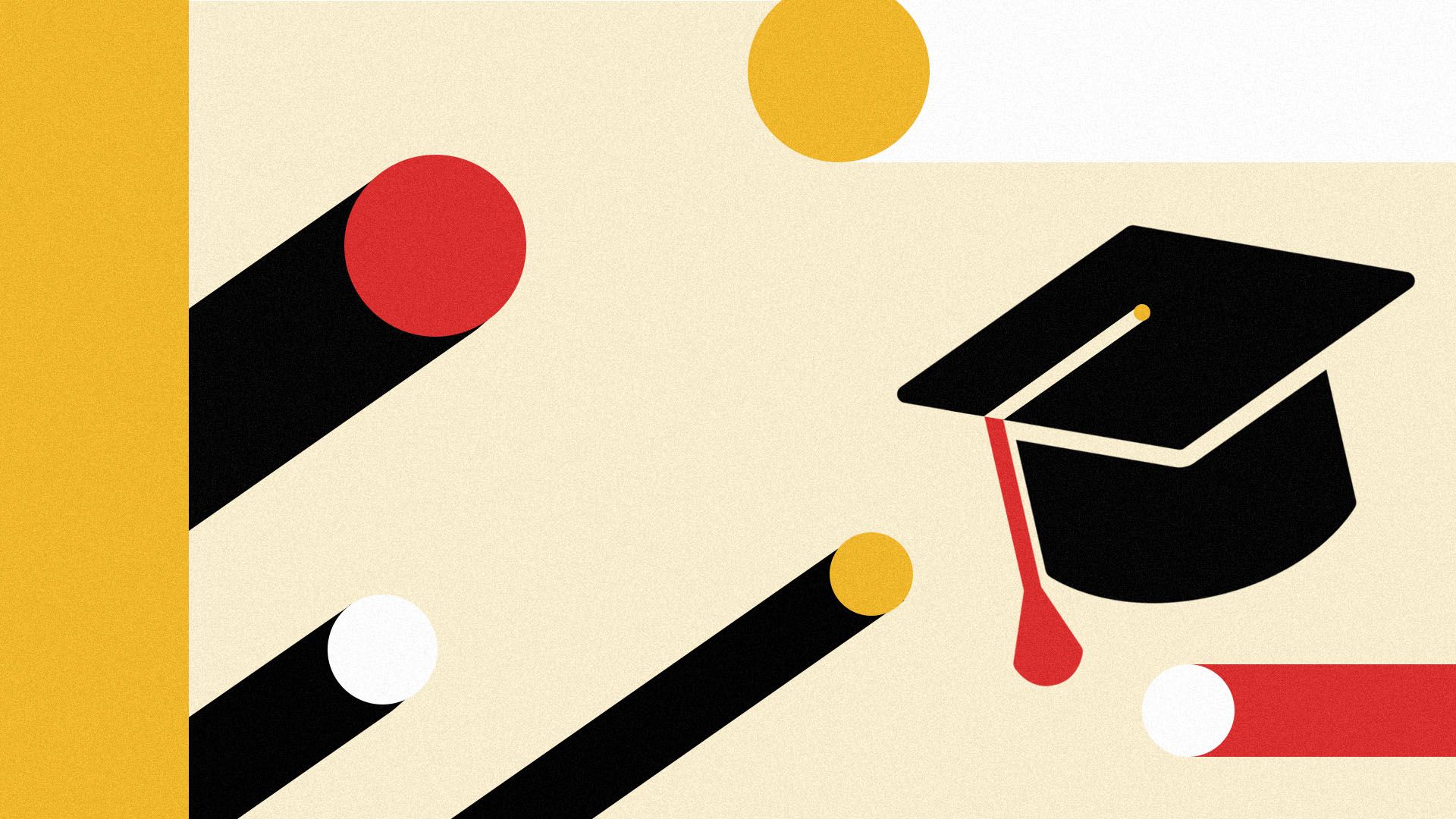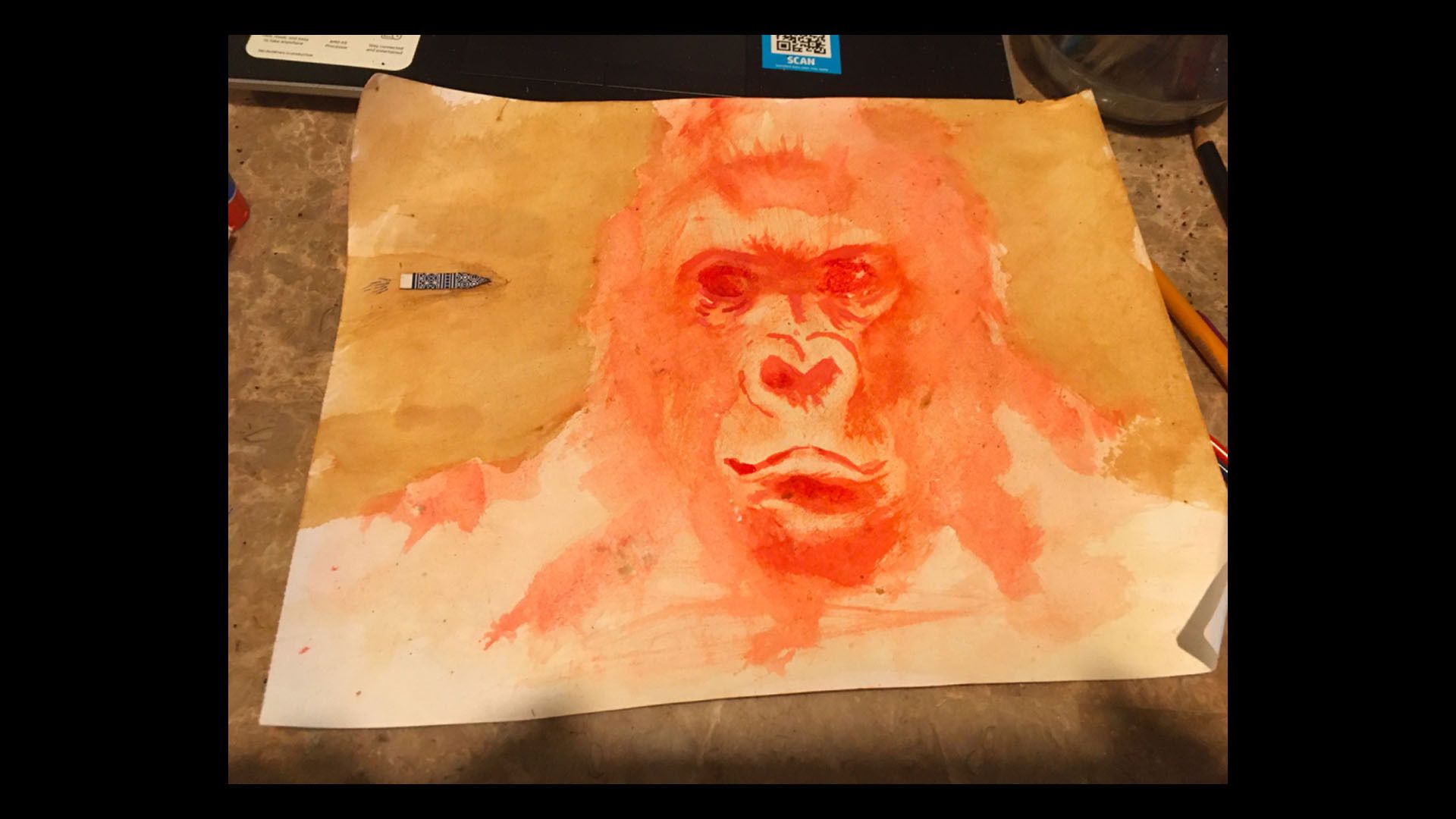Axios AM Deep Dive

May 09, 2020
Good afternoon, and welcome to our latest Axios Deep Dive on the coronavirus pandemic and how it's impacting the nation.
- Today we explore the effects on education. After struggling to homeschool her young kids, Kim Hart started digging into this for her Axios Cities newsletter and realized the topic was worthy of a much deeper look.
Today's Smart Brevity™ count: 1,749 words, 6.5 minutes.
1 big thing: How the pandemic will transform teaching
Illustration: Aïda Amer/Axios
Pandemic-forced school closures — from kindergarten to college — will transform how teachers teach and students learn, Kim Hart and Alison Snyder write.
Why it matters: This could be an opportunity to make changes that result in better outcomes for students and better resources for teachers.
- In a new survey of parents by the National Parents Union, 61% said schools should be focused on rethinking how to educate students and coming up with new ways to teach children moving forward as a result of the COVID-19 crisis.
Here are some of the ways experts say education will change:
1. Redefining assessment: Standardized tests have broadly been canceled this year. While there will be a need to assess where students are academically when classes resume next year, there will likely be more of a focus on mastery-based assessments.
2. New power in the hands of students and parents: Many are considering delaying or forgoing college given the risk of a second wave of this pandemic and the uncertainty of the job market on the other side of a degree.
- That's an opportunity to address concerns about the cost of higher education in the U.S. and how it serves students — and society.
3. More emphasis on personalized learning: Students will eventually return to classrooms and campuses, but virtual education will stay part of the mix.
- Blended learning options where students are split up for classroom learning for a few days a week and online for the remainder will likely become the norm, says Andy Rotherham, co-founder of nonprofit Bellwether Education.
4. Renewed focus on inequities: Larger reliance on remote learning has magnified existing socioeconomic disparities when it comes to access to broadband and devices, plus the availability of a parent to steer at-home learning.
- "Do children have hot spots? Do they have access to devices?" says Elisa Villanueva-Beard, CEO of Teach For America. "It's essential."
Yes, but: There will be a strong pull toward the status quo because people are longing for life to return to the way it was before the pandemic.
The bottom line: One of the most impactful changes brought on by the pandemic is a greater appreciation for teachers' skill, patience and creativity.
- "Ultimately you can have all the tech in the world, but really great learning is a human endeavor," Rose adds. "It's about the teacher and student relationship."
Bonus chart: Half a million teachers vulnerable to COVID-19


Why it matters: Teachers who must continue to stay at home may need to be reassigned to online instruction or 1-on-1 tutoring.
- Some school districts may opt to offer early retirement incentives, which also adds another task — recruiting new teachers to fill vacancies.
2. Today's virtual education isn't working
Illustration: Aïda Amer/Axios
The sudden shift to remote learning has exposed cracks in today's digital teaching strategies, Margaret Harding McGill reports.
Why it matters: School districts that moved classrooms online early encountered challenges in trying to replicate a school day on a screen.
- "Just taking everything we used to do and trying to wedge it into a new virtual reality is not a promising practice, it doesn't work," says Michelle Reid, superintendent of the Northshore School District in the Seattle suburbs, which launched remote learning March 9.
- The district shifted its focus to critical content on a project-based manner, with both real-time learning and go-at-your-own pace assignments.
- Reid says the district is contemplating consolidating educational tools so parents don't have to juggle different platforms.
Demand for ed tech services has surged, as has interest in training for teachers.
- Outschool, a business that offers live online classes for kids, saw a spike in enrollment, CEO Amir Nathoo tells Axios. 3- to 8-year-old kids are the fastest growing segment.
- Coursera CEO Jeff Maggioncalda says the online platform has seen increased interest in courses for educators that aim to help make online teaching more engaging and effective.
What's next: School districts should vet and limit which products they use, per Josh Golin, executive director of the Campaign for a Commercial-Free Childhood.
- “We’re going to have to have a real conversation about what are acceptable business models for ed tech — because if we don’t have those conversations, the business model is going to be advertising-funded education,” Golin said.
3. School lunch budget crunch
Illustration: Sarah Grillo/Axios
Many public schools that are closed by the coronavirus pandemic are still providing lunches to low-income students who would otherwise go hungry, Marisa Fernandez and Dan Primack report.
Why it matters: About half of all U.S. public schoolchildren rely on free or reduced-price meals, a figure that is expected to rise as more parents become unemployed.
How it works: Free school lunches are partially subsidized by kids paying full freight, thus putting added pressure on local budgets at a time of falling tax revenue.
- Public schools also receive nutrition subsidies from the U.S. Department of Agriculture, which has provided extra flexibility, but not extra money to cover school lunch shortfalls.
- The USDA is, however, providing emergency weekly stipends for children in 16 states who normally would receive free or reduced-price school meals.
Around the country:
- Cincinnati's school district only is able to serve 10% of its 60,000 student meals because safety protocols required using smaller kitchens. It expects to lose $2.1 million on dining services from March 16 to May 22.
- Northborough-Southborough regional school district in Massachusetts usually ends each year with upwards of a $10,000 balance in its food services budget, but now anticipates a shortfall of between $50,000 and $75,000.
- New York City is funding its school meals program via the mayor's $170 million emergency food program. 5,000 Department of Education staffers have prepared and distributed 470,000 meals a day for 475 pickup sites.
What to watch: The USDA has not yet told school districts if they’ll be allowed to continue feeding students and their families past June 30, when the current waiver expires.
- "I’m stuck with having to tell my scholars, my families and my community that we can't be there for them," adds Jessica Shelly, director of student dining services for Cincinnati Public Schools.
4. Reopening childcare centers
Illustration: Sarah Grillo/Axios
Childcare centers are in uncharted territory as they try to figure out when and how to reopen without risking further coronavirus spread, Kim writes.
Why it matters: People can't go to work if their young kids aren't cared for, but the unknown effects of COVID-19 on children, and their role in transmitting it, adds more worry about the risks.
Researchers at Rutgers University released recommendations for slowly opening childcare centers, including:
- Taking the temperatures of parents, children and staff before entering a center or home provider.
- Eliminating sign-in procedures that require touch screens or pens.
- Staggering drop-off times and assigning staff to greet each child.
- Using personal protective equipment and disinfecting equipment after use.
Reality check: Budget cuts pose a considerable threat to many state-funded preschool and pre-K programs.
- Low-income children and children of color will be disproportionately impacted by cuts — but it will also hurt more affluent kids if preschool goes virtual.
- "Online preschool programs are cheap, but they have little impact on the learning that truly matters," says Steven Barnett, senior co-director of Rutgers' National Institute for Early Education Research.
Why you'll hear about this again: Expect to see an increase in the number of children who are eligible for state-funded programs, where eligibility is often based on income. State budget shortfalls will make it impossible to meet the new demand.
5. Q&A: Kids' mental health
Illustration: Sarah Grillo/Axios
Children and parents alike are feeling the stress and there is evidence this could be long-lasting. Here's some advice from experts on how to help children cope, Kim writes.
Q. My child is acting out or overreacting to minor things, and other times withdrawing from the rest of the family. What can I do?
A. These are normal responses to stress, says Melissa Whitson, an associate professor at the University of New Haven who specializes in children's trauma.
- Feeling helpless can exacerbate stress, so help children assert some control over the situation in small ways. Reframe social distancing as doing something good to help others.
- Let them make signs, make masks or take part in some sort of volunteer effort. "Finding ways to feel like we are contributing to something is very helpful. That goes for kids, too,'" she said.
Q. How do I get my kid to give up the iPad without triggering a tantrum?
A. Plan in advance for transitions from screen time and decide how you're going to cope when there are problems, says Elizabeth Englander, director of the Massachusetts Aggression Reduction Center at Bridgewater State University.
- Carve out non-screen time and let children know about upcoming changes in the schedule, she said.
- Also, don't be afraid to kill the internet if you don't think the kids can handle making the transition, so they understand the privilege is linked to responding well when it's time to put the screens away.
- She also suggests showing kids calming routines, like going outside, reading a book, or sitting on your lap.
Q. The homeschool expectations are too much and I can't keep up. Am I failing my children?
A. "Nobody is going to be completely keeping up, that's a very tall order under these circumstances," Englander said in a webinar earlier this week. "This is about moderating our expectations."
- Even if it's a struggle to keep up academically, focus on social and coping skills. Have family conversations, family meals, and keep old routines when possible.
6. The new (unplanned) gap year
Illustration: Sarah Grillo/Axios
College students may find themselves taking an untraditional gap year due to uncertainty around their schools' plans to reopen, Marisa reports.
By the numbers: More than a quarter of college students are questioning whether to return to their current college or university in the fall, according to a survey by Top Hat of 3,086 North American students.
The coronavirus could lead to dramatic declines in enrollment from several demographics:
- International student enrollment dropped 2.5% during the SARS epidemic in 2003. Doug Shapiro, executive director of the National Student Clearinghouse Research Center, which tracks higher ed enrollment, predicts COVID-19 could easily be four times that.
- Colleges could take a hit from out-of-state students who may be more comfortable switching to a community college for their first year.
- High school graduates who have families dealing with layoffs may work part time to contribute.
7. 1 fun thing: 🎨 Art students get creative at home
This watercolor was done with coffee grounds and chili powder. Painting: Sofia Rodriguez, 16, courtesy of Cristina Correa
Students on both sides of the border that attend the IDEA San Juan College Prep school in Texas are completing art assignments remotely using materials found at home.
Why it matters: Teachers around the country are struggling to provide their students with continuity — not just in academics, but also in designating time and resources for self-expression. Art teacher Cristina Correa has found resourceful solutions.
When the school dismissed students for extended leave due to the coronavirus, many weren't able to come by the department for supplies.
- Correa designed a series of prompts that encourages students to improvise art supplies from common materials and objects they could find at home.
- "The idea for using Hot Cheetos was based off of a running joke. The kids would sneak in Hot Cheetos and get fingerprints on their work," Correa tells Axios' Naomi Shavin.
- Context: Correa says that as a student body, "we are 96% economically disadvantaged. Some of our students come from far below the poverty line."
The bottom line: "Having a creative outlet, having that kind of escape is important for kids," Correa says. "This gives students a different way to problem solve, to share themselves, and to find something they’re really good at."
Sign up for Axios AM Deep Dive

A deeper look at the biggest topics impacting the future






